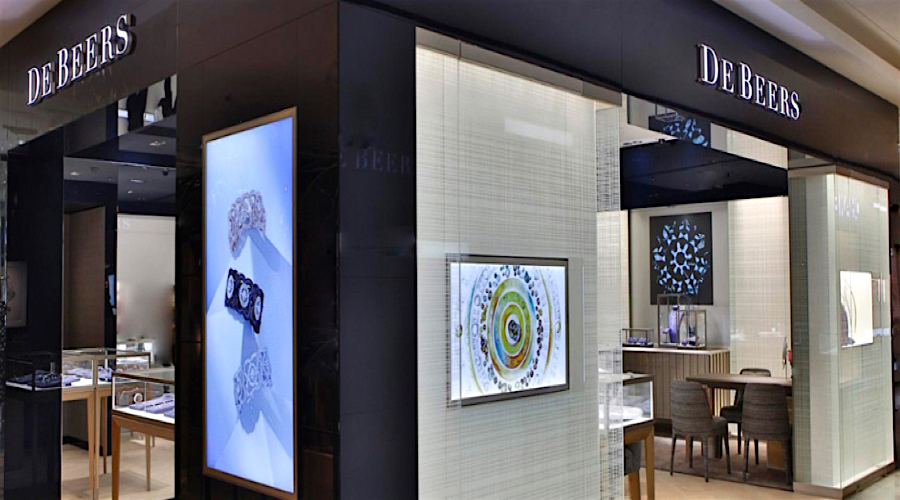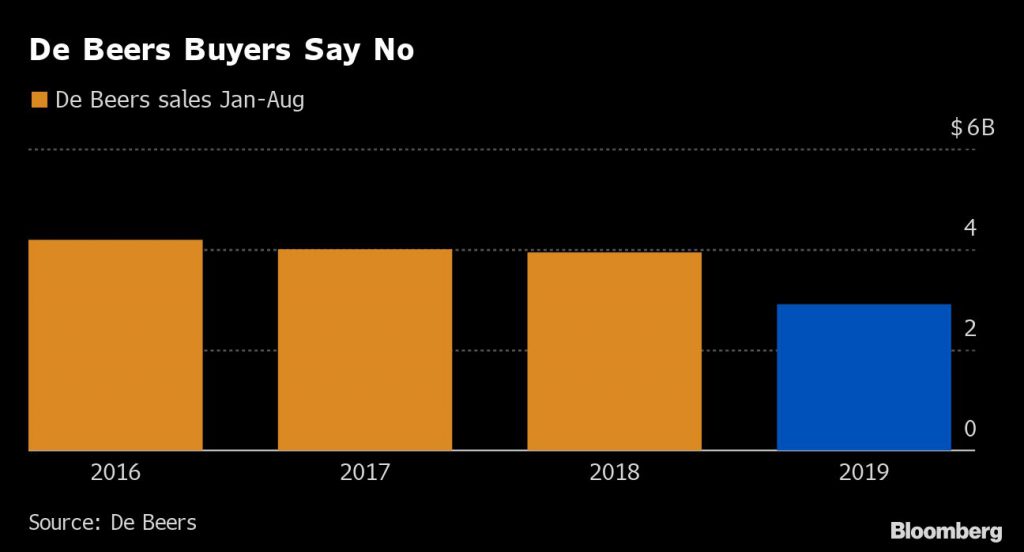De Beers gem sales keep falling as buyers allowed to say no

De Beers’s diamond buyers took the rare opportunity to reject stones from the biggest supplier as the company offered almost unprecedented flexibility to ease a growing crisis.
De Beers sold just $280 million of diamonds this month, 44% less than a year earlier. The only sale smaller in the last three years was in July, when many customers refused to buy amid concerns they couldn’t make money on the rough diamonds. The Anglo American Plc unit’s sales so far this year are down $1 billion from the same time in 2018.

The mostly family-run businesses that cut, polish and trade the world’s diamonds are battling to make a profit because of a surplus of polished stones and as demand for diamond jewelry stagnates. It has also become harder for these companies to access financing.
De Beers took the unusual step of offering concessions to its customers, known as sightholders. Before the sale, it said they could refuse to buy half of the stones offered that are smaller than three-quarters of a carat, people familiar with the matter said. Buyers also got the option to sell back some diamonds to De Beers on favorable terms, the people said.
“With midstream participants continuing to work down polished diamond inventory levels and reduced levels of manufacturing in the key cutting centers, De Beers Group provided customers with further supply flexibility,” Chief Executive Officer Bruce Cleaver said in a statement Wednesday.
De Beers sells gems at 10 sales a year in Botswana to a select group of customers, who are expected to accept the price and quantities they’re offered. Membership of the group was once a lucrative coup for anyone in the industry, but some buyers are now struggling to make money as De Beers keeps prices high, even if it means selling fewer stones.
This year, buyers have grown increasingly frustrated with the cost of rough diamonds sold by De Beers as the prices of polished gems slumped. That’s led to sightholders losing money on stones that they then sell in the so-called secondary market to gem manufacturers who don’t have direct access to De Beers.
“Clients are waiting for polished demand to pick up and are trying to buy as little as possible,” David Harari, co-founder of diamond trading platform Bluedax, said in an industry newsletter on Wednesday. “The secondary market shows no demand for goods, and items traded are being sold without a profit and even at a loss.”
De Beers has responded by letting sightholders lower their annual quotas and defer purchases. Cleaver said last month that he accepts it’s not an easy time for clients, but that the company sees no structural problems in the industry. The firm’s first-half profit dropped almost 30% as sales declined.
(By Thomas Biesheuvel)
{{ commodity.name }}
{{ post.title }}
{{ post.date }}




Comments